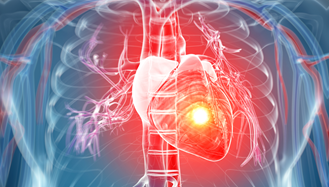Cardiovascular Health

WHY ARE YOU GETTING THIS MESSAGE?
You are receiving this message because you have had a recent cholesterol blood test. As you may know cholesterol is a risk factor for cardiovascular conditions such as heart disease and stroke. Along with other risk factors, we can now calculate the likelihood of you developing cardiovascular disease within the next 10 years.
WHAT ARE THE RISK FACTORS FOR CARDIOVASCULAR DISEASE?
Risk factors are elements in your current health or family history that increase the risk of developing heart disease or stroke. A personal risk score is calculated based on these risk factors:
- Age
- Gender
- Smoking
- High blood pressure
- Diabetes
- Strong family history of heart disease
- Poor diet and excessive alcohol
- Lack of exercise
- Being overweight
- Ethnic origin
Unfortunately, the more risk factors you have, the greater your risk of developing cardiovascular disease.
Risk score are expressed as a % chance.
- Low Risk: A risk score of less than 10% means that there is less than a one in ten chance of developing cardiovascular disease (e.g. stroke or heart attack) in the next 10 years.
- Moderate Risk: A risk score of 10-20% means that there is between a one to two in ten chance of developing cardiovascular disease in the next 10 years.
- High Risk: A risk score of 20% equates to at least a two in ten chance of developing cardiovascular disease in the next 10 years.
YOUR RISK
You are receiving this message because you have been calculated to have a % risk of over 10%.
Current guidance suggests that patients with moderate/high risk scores should consider making lifestyle changes where possible, and be offered the option of starting medication to lower cholesterol (statins)
WHAT CAN YOU DO TO LOWER YOUR RISK?
Whatever your risk score, it is always sensible to try and lower your risk. You will not be able to change things like your age, your ethnic background or your family history, but there are always steps you can take to lower your risk in other ways. These include:
- Stop smoking if you smoke.
- Eat a healthy diet.
- Keep your weight and waist in check.
- Take regular physical activity.
- Cut back if you drink a lot of alcohol.
WHAT ARE STATINS?
These are a group of drugs that help to lower cholesterol. They are effective at reducing levels of cholesterol and other harmful fats in the body and help to reduce the risk of heart attacks and strokes. Statins need to be taken regularly every day for the rest of your life to be effective. Although statins are generally safe, unwanted side effects may occur. These include headache, nausea, vomiting, diarrhoea, and less commonly inflammation of the muscles and liver problems.
Statins can interact with some other drugs, and also grapefruit juice and are not suitable for people with liver disease, pregnant or breast-feeding women. They are a once a day tablet and are most effective when taken at night-time. You will need a routine blood test 3 months and 12 months after starting the statin tablets, and an annual review.
It is still important to look at making positive lifestyle changes, even if you take statin tablet.
NEXT STEPS
If after reading and thinking about this, you want to try a statin please let us know by replying to the text message you received.
If you decide that after reading this information, you do not wish to try a statin, then please let us know by replying to the text message you received. Please try and stay healthy by making the lifestyle changes indicated above.
If you would like to discuss this further with a GP please contact the surgery to book a telephone consultation.
FOR FURTHER INFORMATION PLEASE VISIT:
British Heart Foundation information on statins: https://www.bhf.org.uk/informationsupport/treatments/statins
Patient UK Information Leaflets about cardiovascular risk assessment:
